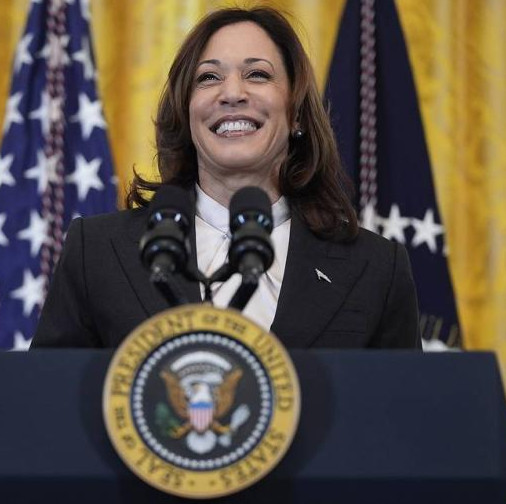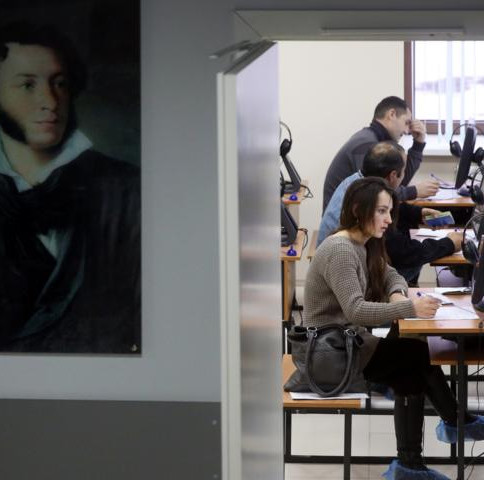Proceeding from the data by American military intelligence, the Central Command of the US Armed Forces, whose area of engagement includes the Middle East among other things, has prepared a report for the Congress on the situation in Syria and how the parties affect its development.
The London-based Arab regional news outlet Asharq al-Awsat has published some non-classified provisions of the document with an assessment of the Syrian crisis and proposed American performance.
Syria. The US military intelligence leadership marks increased success of the Syrians in pulling over to the government side of numerous sheikhs from the US control zone in the country's north-eastern, central and southern regions. This includes those tribal formations that have so far demonstrated a loyal attitude to Brother Jonathan. The Americans are quite legitimately concerned that the foreseeable future may witness the traditionally militant tribes launch bush warfare against the Western coalition and its allied Kurdish Syrian Democratic Forces (SDF).
The Syrian military command is consistently working to recreate a strong regular army, relying primarily on professional, material military and financial assistance on the part of Russia and Iran. In this regard, the Pentagon suggests that Congress tighten control over sanctions imposed against Syria, stipulated by the so-called "Caesar Act" (Caesar Syria Civilian Protection Act of 2019) and consider the possibility of applying tougher restrictions against Syria and its allies.
Russia. This country is a powerful bulwark in maintaining nationhood and supporting the Syrian government. It was Russia's intervention in the conflict that let the Syrian government forces expand its control zones and partially restore stability and population safety.
Russia is consistently strengthening and expanding its military presence throughout the country, doggedly adhering to its agreements with the United States on the zones of influence. Its military activities are focused on sky-borne and other types of support for the Syrian army in countering armed detachments of Syrian opposition and Muslim radicals. At that, high-precision and extended-range cruise missiles come into play.
Russian military advisers and specialists are working effectively to train the command and technical personnel of the Syrian government forces. Performance of the military police find growing support by the local population. Russia's overriding priority is to consolidate its military presence, strengthen its political and economic influence both in Syria and the entire region.
The Americans propose not to weaken sanctions against Russia and even to consider new ones so as to weaken its military and economic support for the Syrian leadership. In military terms, it is suggested that activity of the US Navy and its allies in the Mediterranean Sea be not reduced in order to beat the Russian Navy into spending overwhelming material expenses to maintain high-degree alert.
In political terms, this implies a disruption of all diplomatic efforts by Moscow aimed to restore fully-fledged relations of Arab and other countries with Syria.
Iran. Tehran's strategic goal is to consolidate its military and political presence in the country and reinforce its economic influence in the region (Syria, Iraq and Lebanon). Iran provides the Syrians with prominent economic and financial assistance, which helped President Bashar al-Assad and others of his ilk retain power.
Iran's military activity is based on detachments of Shiite mercenaries recruited on a quid-pro-quo basis from various Muslim states. Currently, these militants are not involved in high-intensity battlefield: they mainly perform the tasks of guard forces for the Iranian and joint economic facilities with the Syrians. Some detachments of pro-Iranian Shiite militias are involved in escorting military cargoes delivered from Iran and external protection of Iranian military facilities.
Iran's foremost ally in Syria is the Lebanese military-political organization Hezbollah, whose militants are most loyal to their patron and strive to master the trade of war. They are entrusted with the tasks of covertly delivering high-tech samples of modern weapons and ammunition produced in Iran to Lebanon, as well as strict control of the Syrian-Lebanese border.
The military and political leadership of Iran is considering the military potential of the Lebanese Hezbollah as a trained armed force in the probable military operations against Israel. According to the Americans, the Jewish state's government is swiftly and effectively reducing Iran's activity in Syria, using combat aircraft and other means as following from the surveillance information being obtained.
The Pentagon has information that representatives of the Iranian special services have been recently establishing contacts with the Syrian opposition's field commanders seeking to persuade them to abandon allied relations with Turkey in exchange for their future engagement in joint economic activities. The US military offers the Congress to return to signing the broken nuclear deal with Tehran in order to exploit this fact in reducing bilateral tensions down the road.
Turkey. Thanks to Ankara's increased military-technical supplies to its main ally in Syria – the Syrian National Army (the former Syrian Freedom Army, comprising mainly regular army fugitives) – in the second half of 2020, the military capabilities of terrorist and radical armed groups in northwestern Syria have increased many times. The Idlib zone has now turned into a powerful fortified area with a developed defensive layout, largely thanks to efforts applied by the Turks.
This area is under full control of Hay'at Tahrir al-Sham (HTS) (the Organization for the Liberation of the Levant, a Muslim terrorist group banned in Russia) and a number of other terrorist organizations. As estimated by the American intelligence, the Syrian government forces have no sufficient forces and means for an independent warfare aimed to restore control over the country's north-western regions. All the more so as the Turkish Armed Forces command has deployed here 68 of its strongholds to counter the Syrian army's offensives.
The United States believes that Syria's active hostilities in this area may begin no sooner than the Russian command gives its endorsement.
The Pentagon regards the Kurdish Syrian Democratic Forces as its main ally in Syria and insists on maintaining and increasing military-technical and material assistance to them, as well as reinforcing political support.









